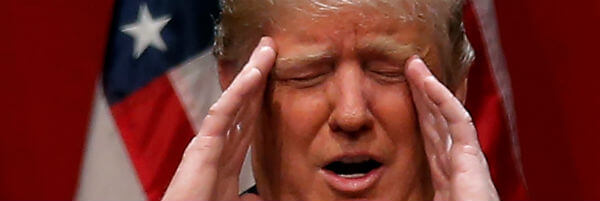
If an assassination attempt is made on Hillary Clinton, will Donald Trump come under investigation for inciting murder?
Al Baldasaro, a New Hampshire state representative who advises Donald Trump on veterans’ issues, says that Clinton is “a piece of garbage,” and says that she should be “put in the firing line and shot for treason.”
The Guardian reports: “Trump campaign spokeswoman Hope Hicks said Trump and his campaign did not agree with Baldasaro’s remarks.”
There’s a difference between disavowing such a statement and not agreeing with it. Maybe the disagreement is on the method of execution. Perhaps like West Virginia Republican lawmaker, Mike Folk, Trump prefers public hangings to firing squads.
Although Baldasaro’s statement grabbed headlines and has caught the attention of the Secret Service, the sentiment he expressed is far from being out of line with the unmeasured hostility towards Clinton that is constantly being fueled by the Trump campaign.
The comments, coming from a chief adviser for a signature issue of Trump’s campaign, are far from the only incendiary remarks directed at the former secretary of state during the Republican national convention, where Clinton has loomed large. On Superior Avenue in downtown Cleveland, men hawking T-shirts reading “Trump This Bitch!” and “Hillary Sucks, But Not Like Monica” have done brisk business.
The anti-Clinton fervor has often dominated the primetime stage of the convention itself. During a highly charged speech on Tuesday night, New Jersey governor Chris Christie presided over arena-wide chants of “Guilty!” and “Lock her up!” as the former federal prosecutor argued in a mock trial “the case now, on the facts, against Hillary Clinton”.
Later that evening, the former presidential candidate Ben Carson departed from his prepared remarks to imply that Clinton admired Satan.
Whenever Trump and the tone of his campaign inspire individuals to engage in acts of violence, the Republican presidential campaign can always claim he had no intention of having this effect.
The more relevant question, however, is what if anything he has done to discourage violence and the growth of hatred. In that regard, the evidence seems clear that he has done little to nothing.
This gets to the heart of incitement: It’s not simply about outsourcing criminal behavior, but it’s about doing this in such a way that a false separation is constructed between the direct and indirect perpetrators of the crime.
Trump may never face prosecution, but that does nothing to absolve him from responsibility for spreading lethal rage across this country.


You have nailed this one. As with everything else in his repertory, his modality is a coarsened, unveiled version of the long-time standard — the opponents of the Republicans have always been traitors and criminals, or advocates of treason and apologists for criminality. In the modern era, this line has been accompanied by successful efforts to make sure that the Republican base is well-armed. Where could this be heading….?
A key insight into the process is embodied in the notion of “stochastic terrorism” — “the use of mass communication to incite random actors to carry out violent or terrorist acts that are statistically predictable but individually unpredictable.” I don’t know why this hasn’t gotten more play. See http://stochasticterrorism.blogspot.com/
Very interesting — though I understand why the term “stochastic terrorism” isn’t getting kicked around much: most people are going to respond, “Say what? Stochastic?”
This is indeed a very relevant concept, though, and underlines the degree to which Trump and ISIS follow the same playbook (so to speak).
Yes, the word ‘stochastic’ stands in the way, but words can always be replaced and frequently are. The idea is probably as much of a block.
People natively operate with some kind of notion of universal causality — things happen because they are caused to happen, typically by (the malevolence of) other people — and it doesn’t jibe with this to imagine that consequences of actions can be predictable outside a traceable causal lineage.
Secondly, and surely just as important: if we were to take this seriously, political behavior would have to change. The institutional right has increasingly adopted the strategy of pretending that their homegrown political opponents are demonic enemies — communists back in the day, and now terrorists, muslims, etc., etc. — who pose (of course) an existential threat. They must be destroyed because they are trying to destroy us. This has reached absurd levels with the mild-mannered conciliator Obama — but the major political actors on the right have been uniformly content to waffle and accepts the gains, with again less & less waffling and more & more outright eliminationist rhetoric, as we saw last week. If they recognized the notion of stochastic terrorism, which is precisely what they are engaged in, they’d have to stop. Then what would they say in their speeches? It’s crucially important to political discourse that “a false separation is constructed between the direct and indirect perpetrators of the crime.”